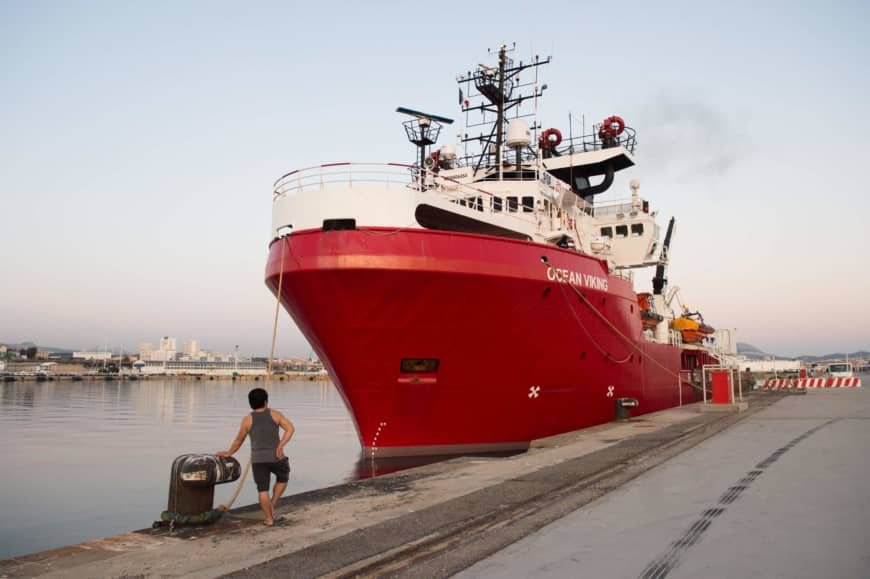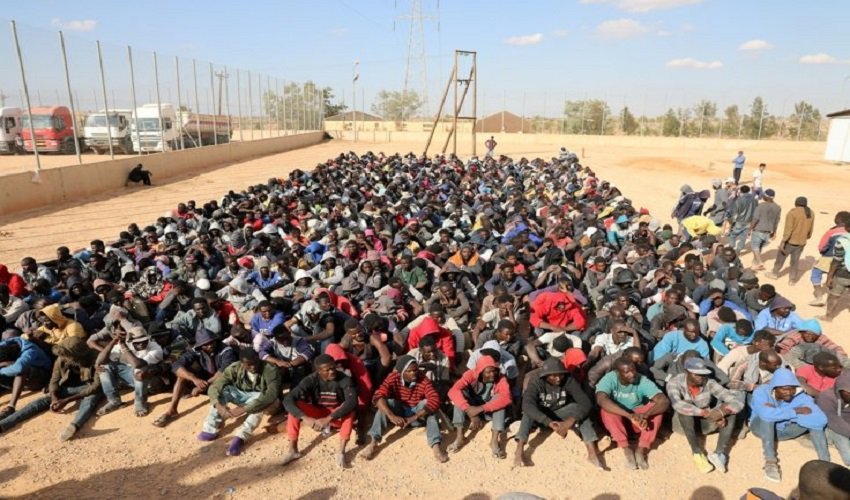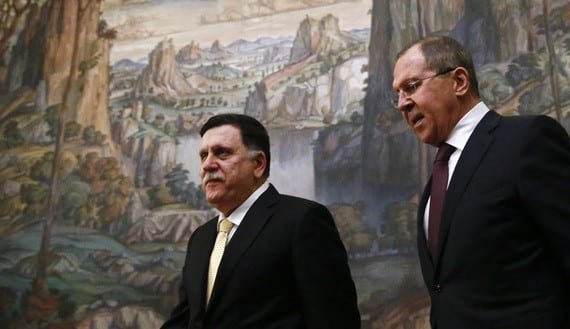Could General Khalifa Hafter be the next Gaddafi? Libya has been war torn and devoid of a national government since Gaddafi’s death and most of its rich oil resources have been plundered living what was once one of Africa’s most developing nations in a state of squalor.
Having seen the great degeneration of the once powerful Libya General Khalifa has thrown down the gauntlet and made an impact statement to the international community. General Khalifa Haftar decided the best way to make his mark was with a military assault.
Last week the general ordered his Libyan National Army to march on Tripoli, the capital of the country’s internationally recognized government, which was supposed to be the site for an upcoming United Nations peace conference. The aggressive move was likely an attempt to prevent the installation of a competitor as Libya’s unified leader. And in the next few days, turmoil nearly a decade in the making will come to a head. In the aftermath of gunfire, the gray-haired, bushy-browed commander aims to rise as the nation’s first undisputed leader since his confidante-turned-competitor Moammar Gadhafi was ousted in 2011. If he succeeds, Haftar will have pulled off an enormous gambit, both courting international allies and repelling the world with rhetoric aimed to appease his countrymen, wrapped up in a yearslong consolidation of power achieved under the auspices of combating Islamic terrorism.
Should Haftar rise to power, the consequences could have ripple effects for the European migrant crisis and the always delicate power struggle in the Middle East. The 76-year-old has led one of three competing governments from eastern Libya with a blood-soaked iron fist since the February 2014 launch of “Operation Dignity,” an aerial and ground assault on Islamist militias in Benghazi.
With a terrorism-fighting mandate, Haftar has built a surprising diversity of foreign allies who, at the very least, are friendly to his cause. In 2017, he met with Roberta Pinotti, Italy’s then defense minister, and French President Emmanuel Macron, whose nation has considerable oil interests in Libya. Israeli warplanes reportedly helped Haftar bomb Islamic State targets in 2015, while the United Arab Emirates has continued to supply him with military weapons. Egypt, which shares a border with his forces, maintains a friendly relationship, while Russia has provided shadow military assistance and printed banknotes for his government in Tobruk.
“I’m reluctant to say it, but if Haftar could actually seize Libya, it might be a good thing,” says Wayne White, a policy expert at the Middle East Policy Council and former U.S. Department of State analyst in the region. “It’s been a stew of trouble, and it might actually be beneficial … if it turns out he’s not terribly ruthless.”
The battle is far from won. Haftar still has to take Tripoli, which White sees as a massive challenge due to its fierce local militias and regional tribalism. Even if he should seize the city, he will face a country that has refused to be tamed, with fierce animosity between the west, which Haftar seeks, and the east, where he has built his strength to this point. “I suspect the only way to solve that nasty problem is to use a lot of harsh heft,” White says.
Born in the northeastern town of Ajdabiya, Haftar graduated from the Benghazi Military University Academy in 1964, later completing military studies in the Soviet Union and Egypt (he reportedly can speak Arabic, Italian, Russian, English and French).
In 1969, he joined the coup that brought Gadhafi to power, eventually becoming the military chief of staff for the warlord. But after Haftar was taken hostage while serving as the chief officer of Gadhafi’s military forces in Chad, his old boss disavowed him. The United States rescued Haftar from his imprisonment and relocated him to Virginia. There, he became an American citizen and spent much of the next two decades, beginning in the 1990s, aiding the CIA in its efforts against Gadhafi. Hafter returned to Libya in 2011 with hopes of leading the new guard once a U.S.-led coalition booted Gadhafi, but he failed to gain traction in the botched aftermath of American intervention.
Despite having publicly supported the U.N.-backed Tripoli government, the U.S. might like having Haftar in charge. He allowed the CIA to build a base in Benghazi, and his control of oil facilities in south and central Libya is another bonus. “The Trump administration reportedly sees Libya’s oil production as important in keeping global prices low,” wrote Jeffrey Feltman, the former U.N. undersecretary for political affairs, in a report for the Carnegie Endowment for International Peace.
So Haftar arrives at the doorstep of Tripoli, promising to add another chapter to the bloody books of a city that has seen assault after assault, dating to seizures by both the Spanish and the Ottomans in the 16th century. While Haftar was perhaps hoping to seize control with a lightning-strike siege (and thus quiet international calls to pull back), reports from Libya show that Tripoli won’t fall so easily.
The result, Libyan Prime Minister Fayez al-Sarraj warned Monday, could be nearly 1 million new refugees fleeing the city. Still, Haftar is likely content to wait out victory. While the U.N. opposes his government, he has enough friends in high places to drown out the critics.






